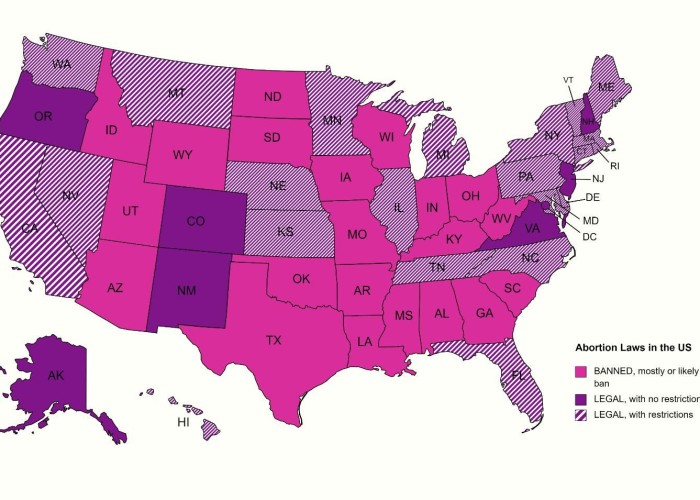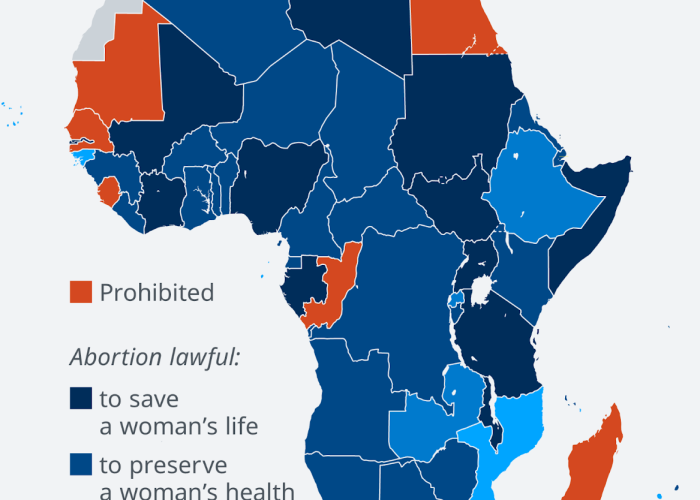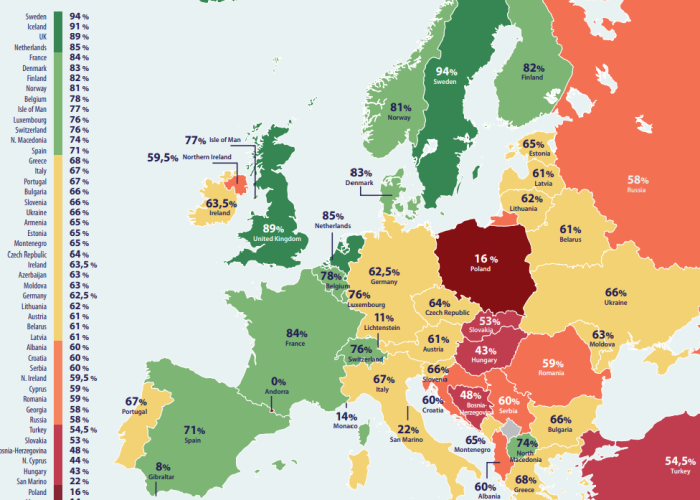Family Law
Abortion
Where abortion is prohibited, women are imprisoned. The kinds of abortions that might be accessible depend on elements like the stage of a woman’s pregnancy and the treatments an abortion practitioner offers. Abortion may be the answer to continuing your life or getting back on track. Whether you keep the baby or get an abortion, your life will be altered forever. Your story will always include this pregnancy. There is a chance that having an abortion could result in physical issues, which would be very serious if they did. Did you know there is a higher chance of emotional/psychological issues like depression, anxiety, and interpersonal issues following surgical and late-term abortions? Men can also experience distress following an abortion, not only women. Consider all the information, then decide how to live with it in the long run.
-
Making abortion legal
-
Abortion laws and legal barriers to access
-
Ending criminal abortion laws
-
Medical abortion
-
Surgical abortion
-
Medication/drug abortion
-
If you are under 18
-
Late abortion restrictions
-
Legal aspects of abortion in the USA
-
Abortion in Africa
-
Abortion in Europe
-
Explanation of categories of abortion laws
Making abortion legal
Women, girls, and anybody else capable of getting pregnant cannot manage their futures without laws and regulations that provide access to contraception and abortion. All across the world, we advocate for easily accessible, legal abortion. LegaMart works to inform policymakers and educate attorneys to safeguard the rights of those seeking abortion care. To provide the most excellent service to our clients, we work with organisations that support women’s sexual and reproductive rights.
Abortion laws and legal barriers to access
Abortion regulations range from absolute bans to permitting abortions worldwide. 58% of women of reproductive age as of 2017 reside in nations where abortions are generally permitted. Although that is the majority, 42% of women reside in the 125 nations with the strictest restrictions on abortion. There is a long way to go until women can access safe, legal abortion care. However, significant advancements are being made daily, and we are aware of a rise in public support for reproductive health. For instance, 90% of individuals in the UK favour access to abortion services and are pro-choice. With a generation of young people motivated to stand more potent than ever to defend reproductive choice, LegaMart collaborates with advocates to eliminate needless legal and policy barriers to abortion worldwide.
LegaMart will answer your inquiry within two working days if you are aware of your pregnancy and have legal concerns about your rights to a self-managed abortion or your right to obtain an abortion in a clinic. Tell us in your message if you have been detained or questioned by the police. We will respond to you as soon as we can. Please be aware that our helpline receives many calls, and we give precedence to those with urgent legal needs. LegaMart offers private legal counsel, data, and, if required, access to expert lawyers.
Ending criminal abortion laws
Women suffer—along with their families and communities—when abortion is illegal. While criminal laws against abortion are meant to do so, they do not. Instead, these restrictions lead to a rise in the number of women and girls who choose risky abortion techniques, increasing their risk of harm or death. In jurisdictions where abortion is prohibited, women who seek or administer abortions may face legal action and imprisonment. LegaMart collaborates with attorneys worldwide to increase public awareness of the terrible effects of criminal abortion legislation and the significance of safe, legal abortion to safeguard women’s health and human rights.
To find out more about the legal aspects of abortion, contact us.
Medical abortion
Drugs are used during medical abortions instead of surgical methods to stop a pregnancy. Early medical abortion The most popular type of medical abortion occurs up to 10 weeks after the last menstrual period (LMP) and is accomplished with “The Abortion Pill” (mifepristone + misoprostol). The Food & Drug Administration (FDA) gave it the go-ahead for use in females up to 10 weeks following LMP. Even after ten weeks of LMP, it is still used despite an increasing failure rate. The procedure involves taking a series of tablets that interfere with the embryo’s ability to connect to the uterus and trigger uterine spasms that force the embryo out.
Surgical abortion
A woman who has decided to have a surgical abortion is free to change their mind UNTIL the surgical process starts.
You still have the option to alter your mind even after paying your deposit or having laminaria inserted into your cervix. What if you’re lying on the examination table, and the abortionist has numbed your cervix but hasn’t inserted any instruments? You can still refuse the procedure, get off the table, and go somewhere. You still have a choice because it is your body. However, it’s too late once the tools are in your uterus and the suction is activated.
Medication/drug abortion
You had no doubts; this is what you desired. You took the first round of medications to end your pregnancy while in the clinic. The bag holding the second batch of tablets, which will be taken in 24 hours, is given to you as you leave the clinic. As you enter your car, you instantly feel dread and sorrow, and your mind screams, “What have I done?! ” The good news is that you still have time to prevent the abortion of your child. The Abortion Pill Reversal is a brand-new strategy that employs natural progesterone to stop the abortion and save the pregnancy.
If you are under 18
Some jurisdictional laws stipulate that before a minor undergoes an abortion, a parent or guardian must be informed (although not given consent or approval). However, in most jurisdictions, the law does not require notification if the abortion provider determines that the minor is old enough to give her consent or if it’s not in her best interests to tell her parents/guardian (concerns about physical or emotional abuse), the minor doesn’t live with her parents, and/or a reasonable attempt has been made to reach the parents, or if the abortion provider believes that the minor is too young to give informed consent, among other reasons.
Late abortion restrictions
Abortion is prohibited at fetal viability, which is often between 24 and 26 weeks. However, few exceptions are permitted if the pregnancy endangers the mother’s life or health or if fetal abnormalities are found.
Legal aspects of abortion in the USA
Let’s look at the evolution of constitutional law regarding the right to abortion, rights for adults and children, conscience provisions, and concerns about abortion and malpractice, focusing on the legal implications of abortion. In the Roe v. Wade decision, the US Supreme Court ruled in 1973 that a woman’s right to choose whether or not to have an abortion was a part of the right to privacy rooted in the idea of personal liberty provided by the 9th and 14th amendments to the US Constitution. The cases ruled that laws that forbade abortion and laws that placed so many restrictions on it that it was impossible to obtain one were unconstitutional. The Court acknowledged the state’s interest in maintaining the foetus’ life and safeguarding maternal health. Still, it stated that a woman’s right to privacy was a fundamental right that should never be violated absent strong evidence.
The Court considered the abortion option in light of the various stages of pregnancy. A woman’s first-trimester abortion rights are almost unrestricted; neither the state nor the federal government may intervene with the woman’s and her doctor’s decision. The state may regulate the abortion process as long as the laws are restricted to preserve and protect maternal health because abortions during the second trimester are more hazardous to the mother’s health. As a result, the state can set licencing requirements for the locations where the process will be carried out and rules for reporting and record keeping. Third-trimester viability allows the state’s compelling interest in foetal life protection to precede the mother’s right to privacy. The state may, but is not compelled to, forbid abortion during this trimester unless it is necessary to protect the mother’s life or health. There were various attempts between 1973 and 1983 to undermine the Court’s decision. The most common attempts were to pass state laws that made it unreasonable to get an abortion. A fundamental legal need for medical practice is that a procedure cannot be performed without the patient’s consent. To get informed consent, the patient must be informed of the risks, advantages, and available treatment options. According to the Supreme Court, not all consent demands for children are unconstitutional. State laws mandating parental notification are lawful, even though parents cannot exercise a complete veto over their child’s decision to have an abortion. Because the right to
privacy belongs exclusively to the pregnant woman, the Court has ruled that spousal permission is unconstitutional. The Court has affirmed that a woman’s right to an abortion does not obligate the state or the federal government to cover the cost of the procedure for poor women. The Supreme Court rendered decisions on a trio of issues addressing the control of abortion by state and local governments in the summer of 1983. Despite placing some restrictions on abortion, the Supreme Court maintained the Roe decision.

Abortion in Africa
The topic of abortion law in Africa is significant and merits consideration. As the various African nations approach the problems of abortion, there are notable differences that can be seen. Nigeria, Ghana, and South Africa are the three nations that provide an excellent foundation for this analysis. This is partially due to the stark differences in the abortion regulations that are in place in these nations, although they are all in Africa. Many individuals are tempted to think that because abortion-related mortality rates are reduced by more liberal abortion legislation, this is beneficial for women’s reproductive health. To fully understand such a stance, it is crucial to consider the effects of having illiberal abortion regulations in a nation.
Nigeria
Nigerian law makes abortion illegal and is punishable by a lengthy prison term of up to 14 years unless the pregnant woman’s life is in danger. There are numerous moral justifications for which one may make a strong case for changing Nigeria’s restrictive abortion laws. There are several valid reasons a woman can decide to have an abortion, such as failure of contraception, psychological or financial inability to care for a child, a pervasive fear of rejection, being too young, etc. The list of causes is lengthy, but one of the most tragic is undoubtedly a pregnancy brought on by rape. Due to the nation’s stringent abortion laws, many women in Nigeria resort to risky undercover abortion operations, which frequently lead to complications associated with abortion. It is terrible that Nigerian abortion laws ignore such situations, unintentionally encouraging illegal abortions and the sometimes lethal repercussions that go along with them. Illegal abortions allegedly cause approximately 11% of maternal deaths in Nigeria, and 50% involve teenagers and young adults.
The need for legal reform to allow for and promote safe, legal abortions to combat the unsafe abortion issue in Nigeria is surprisingly underappreciated, even though Nigeria has one of the highest maternal mortality rates worldwide.
Ghana
Google search analysis reveals a higher interest in abortion pills from nations with historically stricter abortion restrictions, such as Ghana and Nigeria. Abortion regulations in Ghana are only sporadically lenient. Abortions are permitted in Ghana provided they are carried out by trained medical professionals in a facility that has been given the go-ahead and in cases of rape, incest, foetal illness or deformity, “defilement of a female idiot,” or to safeguard one’s physical or mental well-being. Abortion is still widely stigmatised in Ghana, despite the country’s laws being much more lenient than those in Nigeria. As a result, there might still be a higher prevalence of illegal abortions. In Ghana, many women look for illicit abortions, the safety of which varies considerably. Ghana’s high maternal mortality, estimated at 310 maternal deaths per 100,000 live births in 2017, is primarily caused by complications from unsafe abortions. The government should ensure that women are more aware that, under certain circumstances, abortion is legal in Ghana and should disseminate information on how and where to access safe and legal abortion services.
South Africa
Regarding protecting reproductive rights, South Africa is frequently regarded as Africa’s most liberal nation. The Choice in Termination of Pregnancy Act, which “gives women of any age or marital status access to abortion services upon request during the first 12 weeks of pregnancy, and in some situations, extends access to the first 20 weeks of pregnancy,” legalised abortion in South Africa in 1996. The legal system in South Africa is known for its progressive abortion regulations, which are based on protecting women’s autonomy and freedom of choice provided by the country’s constitution. The Choice Act expands the circumstances under which an abortion may be performed while dividing the pregnancy into three phases for abortion-related purposes. Right-on-demand abortion is allowed until the end of the twelfth week of pregnancy. South Africa’s number of women who had illegal abortions decreased after 1996, especially among younger women. Between 1994 and 2001, the mortality rate of abortion decreased by more than 90%. There is still a market for backstreet abortions despite South Africa’s liberal abortion laws. In contrast to Ghana’s moderately permissive abortion regulations and Nigeria’s highly harsh abortion laws, the country’s liberal abortion laws may have contributed to the nation’s reduced abortion-related death rates.

Abortion in Europe

Abortion in Europe
Category I.Completely forbidden
The laws of the nations in this group forbid abortion in any situation, even when the woman’s life or health is in danger. 24 countries fit this description internationally. 91 million (6%) women of reproductive age reside in nations that outlaw abortion altogether.

Category II.To Save the Life of a Woman
When a woman’s life is in danger, abortion is legal in the nations under this category. 41 nations fit these criteria. There are 358 million (22%) women of reproductive age who reside in nations that permit abortions to save a woman’s life.

Category III. To maintain health
These nations’ legal systems allow abortion for medical or therapeutic purposes. 48 nations are included in this group. A total of 186 million (12%) women of reproductive age reside in nations that permit abortions for medical reasons.

Category IV. Large-scale social or economic factors
These laws are typically generously interpreted to allow abortion in various situations. When evaluating the possible effects of pregnancy and childbearing, these nations frequently consider a woman’s actual or reasonably anticipated environment and her social or economic conditions. This group includes thirteen nations. 386 million (24%) of women of childbearing age reside in nations that permit abortion on a wide range of social or financial grounds.

Category V. On-demand (Gestational Limits Vary)
There are 576 million (36%) women of reproductive age who reside in nations that permit abortions on demand. 75 nations worldwide fit this description. For nations in this group, the standard gestational length is 12 weeks. Gestational limits are determined starting on the first day of the most recent menstrual cycle, which is taken to be two weeks before conception. Where regulations state that gestational age restrictions must be determined from conception, these restrictions have been increased by two weeks.

Find Best Lawyers and Legal help in
Latest Articles
Legamart Editorial
- April 28, 2021
Tell us more about your problem.
Please give a brief description about what it is you need to talk to our lawyers about ?
Frequently Asked Questions
What are the legal requirements for obtaining an abortion in different countries, and how do they differ?
The legal requirements for obtaining an abortion vary by country and can be very different. In some countries, abortion is legal and readily available, while in others, it is illegal or heavily restricted.
Here are some examples of the legal requirements for obtaining an abortion in different countries:
United States: In the US, the legality of abortion is determined by the Supreme Court ruling in Roe v. Wade, which allows women to have an abortion up until viability (around 24-28 weeks) without undue burden. However, some states have enacted laws that restrict access to abortion, such as mandatory waiting periods, parental consent, and mandatory counseling.
Canada: In Canada, abortion is legal and there are no laws restricting access. However, some provinces may require a waiting period or counseling before the procedure.
United Kingdom: In the UK, abortion is legal up to 24 weeks of pregnancy, and after that, it may be allowed in certain circumstances, such as if the woman’s life is at risk or there is a fetal abnormality. Two doctors must certify that the legal requirements for an abortion have been met.
France: In France, abortion is legal up to 12 weeks of pregnancy, and up to 24 weeks in certain circumstances, such as if the woman’s life is at risk or there is a fetal abnormality. A mandatory waiting period of 7 days is required before the procedure.
Brazil: In Brazil, abortion is illegal except in cases of rape, risk to the woman’s life, or if the fetus has anencephaly. The procedure can only be performed by a medical professional and must be approved by two physicians.
What is the current state of abortion law in different regions of the world, and what trends are emerging?
The current state of abortion law varies widely between regions of the world. Here is a brief overview:
Europe: Abortion is legal in most European countries, although the specific laws and regulations vary. Some countries have time limits on when abortions can be performed, while others allow for abortion on request. The European Union recognizes access to safe and legal abortion as a fundamental right.
North America: In Canada and the United States, abortion is legal, but individual states and provinces have their own laws regulating access to the procedure. In Mexico, the laws regarding abortion vary by state, with some allowing for abortion under certain circumstances and others prohibiting it altogether.
Latin America: Abortion is illegal or severely restricted in most countries in Latin America. Exceptions include Uruguay and Cuba, which allow for abortion on request, and Argentina, which recently legalized abortion up to 14 weeks of pregnancy.
Asia: Abortion laws in Asia vary widely by country. In China, abortion is legal and widely available, while in other countries such as Indonesia and the Philippines, abortion is heavily restricted or prohibited. In India, abortion is legal up to 20 weeks of pregnancy.
Africa: Abortion laws in Africa also vary widely by country. South Africa has some of the most liberal abortion laws on the continent, while many other countries prohibit or severely restrict access to abortion.
Overall, there is a growing trend toward liberalizing abortion laws around the world, particularly in countries where abortion has traditionally been heavily restricted. However, access to safe and legal abortion remains a major issue in many parts of the world, and women’s ability to access the procedure is often influenced by factors such as geography, income level, and cultural attitudes toward reproductive rights.
What are the legal and ethical implications of new reproductive technologies, such as abortion pills and telemedicine, for abortion law?
The legal and ethical implications of new reproductive technologies, such as abortion pills and telemedicine, for abortion law are complex and multifaceted. Below are some key considerations:
Legal Implications:
Regulation: Abortion pills and telemedicine are often regulated differently from traditional in-clinic abortions, and the legality of these methods can vary by state or country. Some jurisdictions have more restrictive laws around telemedicine and abortion pills, while others have more lenient laws.
Access: While abortion pills and telemedicine can expand access to safe and legal abortion, some states or countries have enacted laws that restrict access to these methods. This can include laws that require in-person visits to a medical facility to obtain the pills, or laws that ban the use of telemedicine for abortion.
Liability: The use of telemedicine and abortion pills may raise questions around medical liability. For example, if a patient experiences complications after using abortion pills obtained through telemedicine, who is responsible for providing follow-up care?
Ethical Implications:
Autonomy: New reproductive technologies can enhance a patient’s autonomy by giving them more control over their reproductive health. However, restrictive laws and regulations can limit this autonomy.
Privacy: The use of telemedicine for abortion can provide greater privacy for patients who may prefer not to travel to a clinic or reveal their personal health decisions to others. However, some critics argue that this technology could increase the risk of coercion or abuse in certain situations.
Safety: While abortion pills have been shown to be safe and effective when used according to instructions, the lack of in-person medical supervision can raise concerns about patient safety. Critics argue that telemedicine may not provide the same level of medical oversight and support as in-person care.
In conclusion, the legal and ethical implications of new reproductive technologies for abortion law are complex and nuanced. While these technologies have the potential to improve access to safe and legal abortion, they also raise questions around regulation, access, liability, autonomy, privacy, and safety. Policymakers and healthcare providers must carefully consider these issues when developing laws and policies related to reproductive healthcare.
How do religious and cultural beliefs affect abortion law and access to abortion in different countries?
Religious and cultural beliefs can have a significant impact on abortion law and access to abortion in different countries. Here are some examples:
- Catholicism: The Catholic Church is strongly opposed to abortion, and this has influenced laws and policies in many predominantly Catholic countries, particularly in Latin America. In countries such as Brazil, Chile, and El Salvador, abortion is heavily restricted or prohibited due to religious influence.
- Islam: Islamic beliefs around abortion vary, but the general consensus is that abortions should be avoided except in cases where the mother’s life is at risk. However, in some Muslim-majority countries, such as Tunisia and Turkey, abortion is legal and widely available.
- Hinduism: Hindu beliefs around abortion are complex and vary depending on the interpretation of religious texts. Some Hindus view abortion as immoral, while others view it as acceptable in certain circumstances, such as when the mother’s life is at risk.
- Cultural attitudes towards women’s reproductive rights: In some cultures, there are strong stigmas around premarital sex and pregnancy, which can make it difficult for women to access abortion services. Additionally, social norms and gender roles may limit women’s ability to make decisions about their own bodies and healthcare.
- Political climates: In some countries, political leaders may use religious or cultural beliefs to restrict access to abortion. For example, in the United States, conservative politicians often cite religious beliefs to justify policies that restrict or deny access to abortion.
Overall, religious and cultural beliefs can play a significant role in shaping abortion laws and attitudes towards abortion in different countries. As a result, access to safe and legal abortion can be limited, particularly in countries where religion plays a prominent role in shaping public policy.
What is the legal status of fetal personhood, and how does it affect abortion law and reproductive rights?
The legal status of fetal personhood is a complex issue that varies between countries and jurisdictions. Fetal personhood refers to the legal recognition of a fetus as a separate entity with its own rights and protections.
In some countries, fetal personhood is recognized from conception or very early in pregnancy. This can affect abortion law and reproductive rights by limiting access to abortion or even criminalizing it. For example, in El Salvador, abortion is illegal under all circumstances, including when the mother’s life is at risk, due to the country’s strict interpretation of fetal personhood laws.
However, in many other countries, the legal recognition of fetal personhood is not established until later in pregnancy. In these cases, access to abortion may be more widely available, particularly in the early stages of pregnancy.
The concept of fetal personhood also has implications for other reproductive rights issues, such as contraception and assisted reproductive technologies. For example, in the United States, some religious organizations and conservative politicians have argued that certain forms of birth control, such as the morning-after pill, constitute abortion because they could prevent a fertilized egg from implanting in the uterus. This argument is based on the belief that a fertilized egg has the same legal rights as a fully developed human being.
Overall, the legal status of fetal personhood is a complex and controversial issue that can have significant implications for reproductive rights and access to healthcare.















